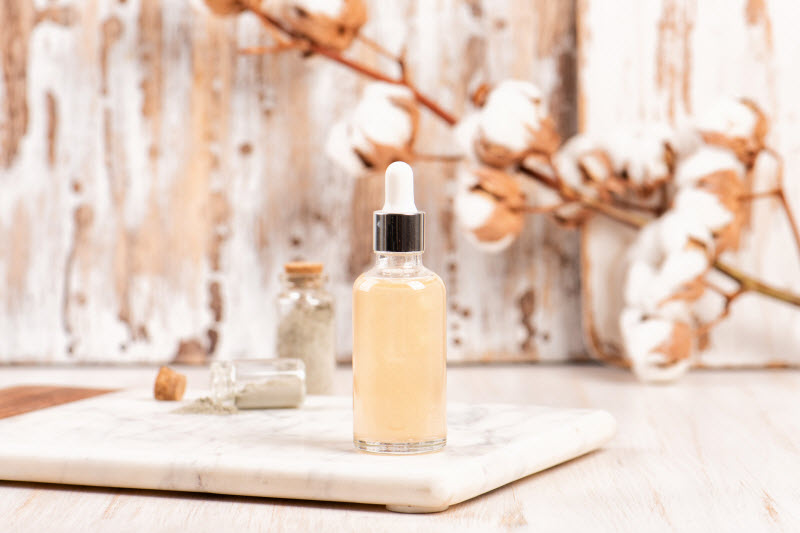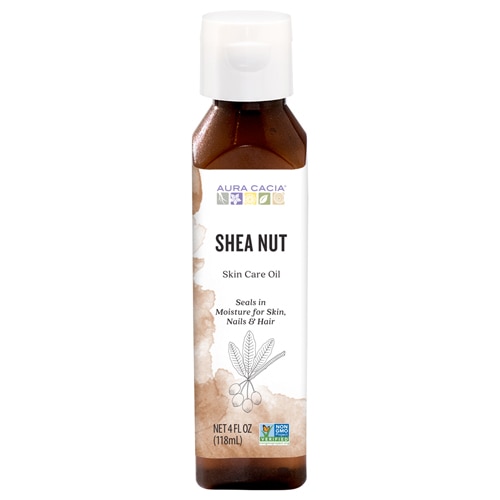[vc_row][vc_column][vc_column_text]As the season shifts from summer to fall, you may be tempted to skip the sunscreen step in your skincare routine. You shouldn’t, of course, because the sun’s ultraviolet rays still affect your complexion, even as temperatures drop. In fact, adding an extra source of protection and moisture this time of year is a wise thing to do. You’ve probably heard of almond oil, jojoba oil or
argan oil. But have you heard of marula oil?

So, what is marula oil?
A cousin to the mango, the deciduous Marula tree (
Scelerocarya birrea) bears plum sized fruits in January through March that are sweet in flavor and have been eaten by locals in South Africa, Botswana and Namibia for thousands of years.
The fruit has an aromatic apple-like scent and falls from the trees before it is ripe – ripening on the ground within 5 days. Also known as the “
food of kings” to the Tsonga people of Mozambique, the fruit is an important source of food-security as it grows in arid environments, ripening when grain stocks are traditionally low and other crops are not ready for harvest. In fact, a single healthy tree can produce up to 4.5 tons of fruit in one season and for this reason, it has long been planted and harvested.
Living up to its name, the translucent white flesh of the fruit contains four times as much vitamin C as orange juice and has a pleasant guava like flavor. It can be found in jams, jellies and beverages including cider, wine and a cream liqueur called Amarula. A popular legend mentions
drunken elephants who, after gorging on rotting marula fruits, become tipsy from the fermented sweets. This is but a myth, as elephants rarely eat anything rotten, though it is true that marula fruit is one of their favorites.
Where does marula oil come from?
The oil comes from the edible kernels found inside the hard stone of the fruit. They must be extracted carefully, without being crushed in the process of cracking the outer stone – another reason why they are called the food of kings. The tasty kernels inside the stone, which in flavor compare most closely to macadamias, are composed of
55 to 60% unsaturated fatty acids, mostly oleic acid, with traces of calcium, magnesium, phosphorous, potassium and sodium.
Similar to olive oil (also high in oleic acid), marula oil is clear or pale yellow in color, and adds a rich, nutty flavor and smooth, buttery texture to a number of indigenous
African dishes. Easy absorption, in part due to the presence of 7% linoleic acid, renders the oil ideal for topical application and it has been used traditionally by people all over southern Africa as an emollient and skin softener, often massaged into stretch marks, cracked heels, dry lips or hands or mixed with millet grains as a moisturizing body scrub.
Marula oil also contains amino acids L-arginine and glutamic acid as well as
antioxidants including procyanidins, gallotannins, and tocopherols (or vitamin E).
What are some notable marula oil benefits?
Loaded with fatty acids, amino acids and antioxidants, marula oil offers the following benefits:
Fatty acids are the building blocks of fat and aid your body in a
myriad of activities, from energy storage to regulating blood pressure, from immune and inflammatory response to the production of thyroid and adrenal hormones, not to mention supporting healthy skin and hair. In creams and lotions, the presence of fatty acids such as oleic acid, acts as a thickening agent while also helping to reduce moisture loss in dry environments.
Amino acids such as those found in marula oil are the essential components of protein. According to a study done in 2021 by the
Journal of Cosmetic Dermatology, the presence of amino acids in topical lotions and creams serves to regulate skin hydration and PH, visibly reducing skin redness and irritation.
L-arginine in particular, speeds the recovery of wounds, modulates collagen deposition and increases cell turnover. When applied topically,
glutamic acid draws moisture from the atmosphere to the skin, similarly to hyaluronic acid. Besides making skin plumper and dewier, it has also been shown to increase skin cells’ elasticity.
Antioxidants including the vitamin E and procyanidins present in marula oil, address the cellular tissue damage or
oxidative stress your skin experiences from environmental stressors including ultraviolet light radiation, pollutants, cigarette smoke, alcohol and heavy metals. Oxidative stress creates free radicals which accelerate your skin’s aging process through the loss of collagen and elastin fibers, resulting in fine wrinkles, sagging, dark spots and other discoloration. Antioxidants however, scavenge these free radicals, preventing and reducing the damage they cause.
Who benefits the most from using marula oil?
Traditionally, marula oil is used by the
Tsonga people of South Africa and Mozambique as a baby oil and moisturizer for women’s skin and is gifted to new mothers right after giving birth. In north central Namibia, Owambo women use it as a moisturizing lotion, especially for brides before their wedding ceremonies.
Current
studies concur with anecdotal and traditional uses of this oil, finding it to exhibit not only non-irritating, but also hydrating and occlusive properties, with a moderate prevention of transepidermal water loss – or water vapor that passively evaporates through the skin barrier.
Further, marula oil is non-comedogenic, so it won’t clog pores like coconut oil can, but due to the fact that it is high in oleic acid, may be considered best for dry skin and hair types or for use in dry environments.
Due to its soothing and nourishing properties it is ideal for use on sensitive skin, however it is recommended that you do a patch test before using marula oil, regardless of your skin type. Try applying three or four drops of it on your inner forearm or the bend of your elbow and wait 24 hours. If there are no signs of hives, redness, or irritation, you can begin using it topically.
How to use marula oil in your skincare routine
After washing and conditioning your skin, hair or nails, apply marula oil at the end. Because it contains heavy or dense molecules, it's able to penetrate your moisturizer, allowing it to reach your skin, but the reverse is not true and adding lotion to your skin
after applying an oil like marula can actually block the lotion from being absorbed. So, marula oil is most effective when used after applying moisturizer on clean, damp skin.
Because antioxidants and fatty acids are heat sensitive, you’ll want to choose an oil that is cold-pressed and minimally processed such as
Insta Natural Organic Marula Oil or
Acure Essentials Marula Oil. Both of these products contain one single ingredient – marula oil – and so can be used just about everywhere on the body. Andalou Natural’s Silky Smooth
Shampoo and
Conditioner, which besides containing marula oil also includes aloe, shea butter, cocoa butter and fruit stem cells, is another way to incorporate the benefits of marula oil on dry, brittle, frizzy, coarse or kinky hair strands.
You can’t go wrong with marula oil – no matter which way you decide to integrate this cousin of the mango into your skincare routine, it will add to a glowing, dewy, hydrated complexion and stronger, shinier hair and nails!
[/vc_column_text][/vc_column][/vc_row][vc_row][vc_column][vc_text_separator title="Featured Products" border_width="2"][vc_row_inner equal_height="yes" content_placement="middle" gap="35"][vc_column_inner width="1/3"][vc_single_image image="161687" img_size="full" alignment="center" onclick="custom_link" img_link_target="_blank" css=".vc_custom_1660051969078{padding-right: 7% !important;padding-left: 7% !important;}" link="https://www.vitacost.com/desert-essence-restorative-face-oil"][/vc_column_inner][vc_column_inner width="1/3"][vc_single_image image="161686" img_size="full" alignment="center" onclick="custom_link" img_link_target="_blank" css=".vc_custom_1660051988568{padding-right: 7% !important;padding-left: 7% !important;}" link="https://www.vitacost.com/acure-the-essentials-marula-oil-1-fl-oz"][/vc_column_inner][vc_column_inner width="1/3"][vc_single_image image="161688" img_size="full" alignment="center" onclick="custom_link" img_link_target="_blank" css=".vc_custom_1660052023785{padding-right: 7% !important;padding-left: 7% !important;}" link="https://www.vitacost.com/instanatural-organic-marula-oil"][/vc_column_inner][/vc_row_inner][/vc_column][/vc_row]




